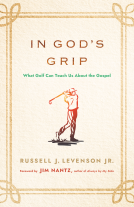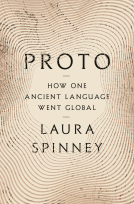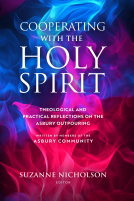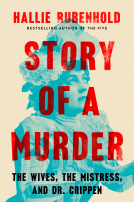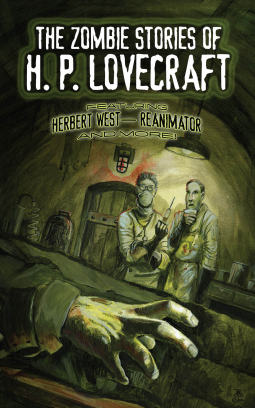
The Zombie Stories of H. P. Lovecraft
Featuring Herbert West--Reanimator and More!
by H. P. Lovecraft
This title was previously available on NetGalley and is now archived.
Send NetGalley books directly to your Kindle or Kindle app
1
To read on a Kindle or Kindle app, please add kindle@netgalley.com as an approved email address to receive files in your Amazon account. Click here for step-by-step instructions.
2
Also find your Kindle email address within your Amazon account, and enter it here.
Pub Date Sep 16 2015 | Archive Date Dec 08 2015
Description
"A fantastic anthology by the true master of horror fiction. Highly recommended." — Book Nutter's Book Reviews
"This is an excellent collection of Lovecraft's 'zombie' stories, which serves both as a treat to old fans and a sampler to people who haven't read Lovecraft before. I would highly recommend this collection." — Of Stacks and Cups
Joyce Carol Oates, Stephen King, and other experts on horror fiction deem H. P. Lovecraft the master teller of weird tales. These six chilling stories ― all published between 1921 and 1933 ― offer compelling journeys into the land of the undead.
The collection begins with "The Outsider," the tale of a recluse whose overwhelming loneliness emboldens him to seek out human contact. Subsequent stories include "Herbert West―Reanimator," written as a satire of Frankenstein and used as the source for a popular horror film; "In the Vault," in which an undertaker experiences supernatural revenge; "Cool Air," an account of a doctor's fanatical obsession with defying death; and "Pickman's Model," focusing on an artist's gallery of nightmares. "The Thing on the Doorstep" concludes the compilation with the compelling tale of a man whose body is preyed upon by a spirit that refuses to die.
"Highly recommended. A great way to re-animate Lovecraft's standing as a master of the horror genre." —Looking for a Good Book
"A delightfully horrific collection of tales that will thrill any horror fan!" — A Universe in Words
Available Editions
| EDITION | Other Format |
| ISBN | 9780486798066 |
| PRICE | $7.99 (USD) |
Featured Reviews
I received this as an arc from netgalley in exchange for an honest review.
This is a collection of short stories about zombies by joyce carol oates and stephen king.
Very good read. A very good collection of stories. Read in a day could not put it down. Must read.
 Reviewer 230978
Reviewer 230978
The Zombie Stories of H. P. Lovecraft- Here is another sampling of Howard Phillips Lovecraft's groundbreaking dark forbidding work. This time the theme is stories associated with zombies and their like, but sometimes this thin premise is stretched a bit. Still, if you are unfamiliar with Lovecraft, this is a good place to start, with some prominent stories offered. There is, of course, Herbert West-Reanimator, where in Mr. West manages to bring animation to dead corpses. Cool Air finds a man who lives in a frigid atmosphere in order to prolong life. Also you will find Pickman's Model a classic Lovecraft story that gets better with each reading. The Outsider, In The Vault, The Thing On The Doorstep round out the contents. These stories were written between 1921 to 1933, and carry in them the powerful dread and alarming details that have made Lovecraft a paragon of horror for numerous generations. Dover does a great job providing a nice clean transfer with an active table of contents. If you are the least bit interested in classic horror, this might be just for you.
 Jeffrey W, Reviewer
Jeffrey W, Reviewer
The Zombie Stories of H. P. Lovecraft was received direct from the publisher in exchange for this review. That being said, I would still have bought it for the fact that someone put HP Lovecrafts (arguably one of the best horror writers ever), zombie stories into one collection. I have been reading this author for years but had never read Herbert West - Reanimator, though I have seen the movie(s) several times. Dont get wrapped around the "zombies" you see in modern movies, these are different types of reanimation. If you like these type stories, or this author, definitely buy this book sooner rather than later.
 Joseph S, Reviewer
Joseph S, Reviewer
Today when we think of horror our minds bring about images of Stephen King’s It and a pile of his other books or George Romero and Wes Craven in the film world. Horror has taken on a certain violence to create fear in the audience, and the latest wave of torture horror movies move to shock the viewer. But before Dawn of the Dead and The Walking Dead there were the original horror and zombies tales. Before all this, a man named Howard Phillips Lovecraft produced some of the best original horror in American literature. During his lifetime, he was virtually unknown except in pulp magazines. He gained fame after his death and even among non-readers many horror fans know of Reanimator, Dagon, and the Cthulhu South Park episode.
What separates Lovecraft from other writers is his sense his writing leaves on readers. The zombie stories in this Dover collection, although not including the popular Cthulhu mythos, display some of the finer work of the writer. From the opening story “The Outsider,” the reader experiences something more than typical horror. There is an overwhelming feeling of dread and despair that lingers long after reading the story. The reader will feel the darkness, the cold stone enclosure, the damp, moldy, mossy passageways. It is not torture or violence that create the fear it is the setting and inserting the reader into hopelessness that surrounds the characters. That is the stuff of nightmares. It lingers deep in the brain almost as a personal experience.
Lovecraft creates lasting horror images. Whether the image is Herbert West’s pathological drive, Egyptian mythology, or the killing of one’s best friend there is a soul-wrenching memory created in the reader’s mind. He or she feels as helpless as the characters in the story. Simply putting the book down and walking away is nearly impossible. It will haunt you. Your only hope is to finish in a vain attempt to find closure. An excellent introduction to the master of horror.
 Reviewer 281270
Reviewer 281270
This is an excellent anthology, ideal for someone new to H.P.Lovecraft or for an established fan. It includes some of his "zombie" stories. The word zombie is used fairly loosely, as it's not necessarily the traditional zombie we're used to a la The Walking Dead, but does deal with the theme of rising from the grave.
The six stories included are:
The Outsider: A gothic fiction story of an imprisoned man, who attempts to search for human contact after becoming desperate with loneliness.
Herbert West - Reanimator: A doctor and his assistant attempt to discover what happens after death, and whether it is possible to bring the dead back to life. If you're a fan of horror movies - you may recognize the plot from the 1985 horror movie "Re-Animator".
In The Vault: An undertaker is trapped in the vault where coffins are stored, and must try to find a way to escape.
Cool Air: A strange narrator tells a story of his meeting with a doctor who is obsessed with defying death.
Pickman's Model: A story that explores the horror behind a painter's extremely graphic creations.
The Thing on the Doorstep: A macabre story of either the supernatural, or insanity.
If you enjoy classic horror then this is an anthology for you. Although I'd read several of the stories before, I felt they were presented well here and would be a good read for any fans of H.P. Lovecraft, classic horror, or just a creepy story. Very atmospheric.
I have to admit that I am no stranger to Lovecraft's stories, having read just about everything by him that I could. This collection of his "zombie" stories are not about the typical zombies you read about so often today. Rather, these are Lovecraft's own versions of "zombies"; creatures brought back from death's door (in some cases), or merely "reanimated" for a time, as in others.
In re-reading each of these stories, I experienced that same "chilled to the bone" sensation as when I read them initially. Some of the more popular titles, "Herbert West, Reanimator", and Pickman's Model certainly attest to the longevity of Lovecraft's words. These tales are no less harrowing and all-encompassing no matter how many times one reads them.
Some of my personal favorites: "In the Vault", and "The Thing on the Doorstep" were also included in this collection. "In the Vault" was one that I was always particularly entranced with, as I always felt that it had a most satisfying conclusion....
The last two titles included here were "The Outsider", and "Cool Air". Each of these stories captivates the reader's attention from the very beginning, but neither reveal their true, stark terror until the very end.
Overall, an exceptional collection of works that belongs upon the shelves of any Lovecraft enthusiast!
Highly recommended!
*I received an e-copy of this title from NetGalley and the Publisher in exchange for an honest review.*
 veronica l, Reviewer
veronica l, Reviewer
This is truly a fantastic anthology by the true master of horror fiction. Even the renowned Stephen King (another favorite author of mine) says he was influenced by H.P Lovecraft.
These zombie stories are a bit different than the current day type of zombie but Lovecraft was a master at creating horrific stories with such atmosphere and suspense that they are far superior to anything we have today.
H.P Lovecraft's work is classic and I am glad to see them revived once again. Highly recommended. In fact, I plan to purchase a copy for myself as the stories are ones that I will read again and again.
I received a copy of this anthology via Netgalley in exchange for an honest review.
 Leah G, Reviewer
Leah G, Reviewer
Loathsome, blasphemous, hellish creatures galore!
What better to start the autumn horror season than an entire collection, stuffed full of HP Lovecraft's overblown language and trademark use of four adjectives whenever one would do – a truly hideous, bloated, blasphemous, loathsome collection of tales from beyond the tomb.
There are five individual stories in the book, plus the Herbert West – Reanimator series, which is made up of six linked episodes. The 'zombie' reference in the title is a bit of a cheat – only the Herbert West stories contain what we might think of today as zombies, and I suspect were probably influential on the development of the zombie genre, but Lovecraft himself doesn't use the word. Most of the rest do have a connection to people returning from the dead in one way or another, but in one or two of them the link is tenuous indeed.
All bar the last story were written between 1921-26, Lovecraft's early period before he developed the themes and style of his best known Cthulhu Mythos stories. There are some mentions of things, however, such as Arkham and the library at Miskatonic University, that he would go on to develop and use in the later stories. Even at this early stage in his career Lovecraft had developed his love for overblown language, though not yet (thankfully) his penchant for ridiculously overlong descriptions of ancient alien buildings. The final story, The Thing on the Doorstep, was written in 1933 and is much more in the Cthulhu style – as a result it is by far the longest story in the book, though still reasonably tightly focused in comparison to some of his other work.
The included stories are:
The Outsider (1921) – a rather good story of a boy who grows up locked away in a castle deep within a forest. One day he ascends the black tower and after much peril finds himself in the world of men – but there is also a hideous, blasphemous creature here and a nice, if somewhat predictable, twist ending. (On that point, I always feel a little reluctant to use the word predictable with these early, influential writers, because I suspect they're only predictable now because so many people have subsequently recycled what were probably original plots at the time.)
Herbert West – Reanimator (1921-22) – This starts off brilliantly with a horrifying tale of a medical student obsessed with bringing the dead back to life. Each episode is told by his fellow student (unnamed) who starts out as a willing assistant but gradually becomes more appalled at West's experiments and ends up fearing for his own life. The stories get darker and more gruesome as they go on – these are horror in the true sense of the word and very imaginative. Each story stands alone but there is also a strand that runs through them all, and the horrific ending is chillingly foreshadowed throughout. Unfortunately the series was spoiled for me by one episode in which Lovecraft uses some really vile dehumanising language about a black character. I try hard not to let contemporary attitudes get in the way when reading books of an earlier period, but that's sometimes harder than others. It's generally accepted, I think, that Lovecraft was particularly racist, more even than different times can account for, but this is the first of his stories that I've read where it has been quite so blatantly and disgustingly expressed. A pity – otherwise the series is excellent and spine-chillingly horrific.
In the Vault (1925) – Another lovely bit of horror, although I admit this one made me laugh rather than shiver. A lazy undertaker becomes trapped in a vault with the coffins containing several of his customers. A cautionary tale to remind us all that we should do our jobs properly – angry customers can make their complaints in many ways...
Cool Air (1926) – Again good! A mysterious doctor lives in rooms in a boarding house, where he has installed a refrigeration system to keep the temperature unusually low. It's fairly easy to work out what's going on in this one, but it doesn't matter – the writing keeps it creepily horrible anyway. And when the refrigeration system breaks down and the temperature rises – ooh! Let's put it this way – you may want to be sure you have an emergency ice-lolly on stand-by when reading this one...
Pickman's Model (1926) – the only one I thought was really quite poor. A painter paints weird and horrible pictures that terrify everyone who sees them. I found the twist in this one was not only obvious but weak, and it had the Lovecraftian fault of going on and on with repetitive descriptions for far too long.
The Thing on the Doorstep (1933) – a story of Arkham and the hideous fish people of Innsmouth. The most traditionally Lovecraftian of the stories, and a very good one to end on. A man who has been over-protected all his life falls for a beautiful but strange girl from Innsmouth, and against the advice of his friends and family marries her. But soon it seems that she has some kind of evil control over him, and his sanity, perhaps his very life, is at risk. Again I think the reader knows what's going on here long before the participants do, but it's very well written and has some genuinely disturbing images, particularly towards the end.
Now that I've read a reasonable amount of Lovecraft I think I can say I actually prefer his earlier stuff, before he developed his rambling style and before he got so heavily into the whole Cthulhu, ancient alien business. If you can overlook the racist language in Herbert West, then this is a very good collection, which should tingle your spine quite pleasantly...
NB This book was provided for review by the publisher, Dover Publications.
 Althea M, Book Trade Professional
Althea M, Book Trade Professional
***** The Outsider A re-read.
It doesn't get any more gothic than this!
Alone in a dreary dark castle, a young man has no memories of every being anywhere else, of ever seeing another human soul. He learns of the outside world from the castle's extensive libraries, and develops the desire to see the light. Thus, he embarks on a dangerous excursion to try to reach the exterior.
This story is a classic example of the paradox at the heart of Lovecraft's art and life: He was xenophobic well past what was considered average at the time, but yet he writes of horrors - "outsiders" - from an inside perspective, with remarkable sympathy.
*** Herbert West - Reanimator Although presented here as one story, this is actually a series of six linked stories about the mad scientist, Dr. Herbert West. More than anything else by Lovecraft, these feel like true pulp fiction, written for pure shocking entertainment, with a dashed-off, distinctly "non-literary" feel. Originally published as a serial, the magazine that they were written for apparently (and unfortunately) demanded that Lovecraft 're-cap' previous events in each installment, which makes for repetitive, tedious reading when you're not waiting a month between segments.
Once the re-cap bits are dealt with, though, the story itself is great fun. It can be viewed as a parody of or an homage to Mary Shelley's 'Frankenstein' - but where Dr. Frankenstein was an earnest experimenter, Dr. West is a straight-up psychopath. Each segment tries to outdo the one before with gross and disturbing gory details. [One 'alert' - the third segment clearly reflects what can be most generously interpreted as the narrator's racism, in a way that's a different sort of unpleasant.]
I haven't seen the movie that was based on these stories. Someone told me, back when it was a recent release, that its cheesy schlockiness didn't do Lovecraft justice. But after reading the stories, I actually feel that a schlocky, campy adaptation is appropriate to the source material.
**** In The Vault: A re-read (I've read this one more than once before).
An undertaker accidentally locks himself inside a tomb full of coffins awaiting burial. Although he's an unimaginative, workman-like sort - not one to be bothered by the proximity of corpses - after what transpires that night, he'll never be the same.
Objectively, this is an exceedingly well-crafted piece, but the 'big reveal' just doesn't bother me as much as it's clearly supposed to. It's predicated on an assumption of a religious belief in the necessity of the integrity of dead bodies. If you're one of those people who believes that your body needs to be interred intact in order to be resurrected at the end of days, then yes, you will find the undertaker's 'transgression' disturbing. But I'm not one of those people.
**** Cool Air: Forced by circumstances to take lodging in a cheap rooming house, the narrator is delighted to discover that one of his neighbors is a well-educated doctor - a man of 'quality,' even if he's a bit eccentric. The most obvious oddity is that he's a recluse, never leaving his rented rooms - and he keeps those rooms air-conditioned to a shockingly low temperature. However, it will eventually be revealed that there was a reason for his 'madness.'
**** Pickman's Model: A re-read.
When someone speaks of an artist's model, the first thing that probably leaps to mind is an attractive woman. But when an artist specializes in painting the weird, the grotesque and the macabre, the feminine form is likely not what he's seeking out. When the artist in this story invites a fan to see his secret studio, in the depths of Boston's North end slums, what is revealed has implications for the whole city.
**** Thing on the Doorstep: A re-read.
"It is true that I have sent six bullets through the head of my best friend, and yet I hope to show by this statement that I am not his murderer." Is that a great first line, or what?
A frightening tale of stolen identity and ancient, immortal horrors.
The narrator, Dan, was friends with Edward Derby since childhood. However, he saw Edward grow up into an unassertive, weak-willed man, who eventually merely transferred his dependence on his parents onto his new wife, Asenath... an Innsmouth woman with strangely protuberant eyes.
Of course we know that anyone from Innsmouth is bound to be bad news, but in this case, the horror runs even deeper than one might guess. This story is full of all of the favorite Lovecraftian motifs... and would be nearly perfect, except for the fact that the narrative depends on the aggravating plot point that Asenath's body is unsatisfactory to the ancient spirit that had possessed it because the female brain is inferior. Of course, it's also pointed out, as a secondary negative factor, that she's also not fully human, but the female thing just seems to be unacceptable. And that concept is more than a bit unacceptable to me. It's a shame, because this story is near-perfect in ever other respect. (Full disclosure: there are New England Asenaths in my family tree - don't dis them!) ;-)
Although Lovecraft's work is all available in many locations, it's nice to have a small collection come out to revisit some stories and encourage me to read a few that I've previously overlooked.
Many thanks to Dover and NetGalley for this copy of the book. As always, my opinions are solely my own.
 Paula D, Reviewer
Paula D, Reviewer
This collection of Lovecraft short stories is an excellent introduction to his works. I've read most of his short stories and novels through the years, and these were all familiar.
They are a nice change from the usual zombie stories (except for the Reanimator series, they really have nothing to do with zombies, but other more horrifying themes). Lovecraft was one of the most influential modern horror writers, and this short anthology is a quick and easy way to become familiar with his writings. These stories are excellent examples of the different themes sprinkled throughout his writings, including the Cthulhu Mythos. For a quick Lovecraft fix, or to sample what his writing was all about, read this book. You will not be disappointed!
 Soudha P, Reviewer
Soudha P, Reviewer
This is an excellent collection of Lovecraft's 'zombie' stories, which serves both as a treat to old fans and a sampler to people who haven't read Lovecraft before. Being of the latter group, I was pleased with the choice of stories included in this collection. These are not your typical zombie stories but they are probably more terrifying than the modern versions you'd find on TV today. This collection also introduced me to Lovecraft's unique writing style and after reading it, I can only look forward to reading more of his stories. I would highly recommend this collection.
I absolutely adore H.P. Lovecraft and this book is an excellent anthology. It contains some of his “zombie” stories, but the word zombie is used very loosely, as it is not about the traditional, walking dead, zombies you might be thinking of. Nevertheless, the six stories in this book are all chilling and will make a lasting impression.
Perfect Halloween read and an essential in the autumn horror season.
I start with the assumption that anyone considering purchase of this book likes H. P. Lovecraft. If you're not sure, you're better off starting with his classics, such as [[ASIN:1495255344 The Call of Cthulhu]], or perhaps finding some of the free or low-cost electronic editions such as [[ASIN:B00815U9CU Memory]]. Lovecraft has a style that people either love or hate, and there are strong similarities among his stories such that you have to love the style to read the lesser ones (which includes the six gathered here).
As other reviewers have noted, these are not [[ASIN:B009YXKXEC Night of the Living Dead]] zombie apocalypse stories, but tales in which dead people remain animated. Generally these creatures retain much more intelligence and rationality than zombies, their bodies tend to decay much faster than their minds.
Three of the stories are simple (in plot, not language or atmosphere) and good imitations of [[ASIN:0785814531 Edgar Allan Poe]]. Poe influenced much of Lovecraft's early work. The Outsider is among Lovecraft's earliest horror stories and contains none of his mature themes. In the Vault is a and Cool Air were written around the same time, 1925 and 1926, which was a transitional period for Lovecraft. They are near-opposite takes on reanimation, one is driven by mystical hatred and one has a scientific explanation and more noble purpose; one zombie hurts and the other heals (Lovecraft never uses the word "zombie" in these tales); one is among the worst of people and the other is among the best. Cool Air hints at two of Lovecraft's major themes in later work, the danger of scientific experimentation and the evil of forbidden knowledge.
The latest story, from 1933, is The Thing on the Doorstep. This is almost a mature Lovecraft story, centered around the ideas of inherited guilt, evil forbidden knowledge, non-human beings breeding with people and ancient evil taking over weak minds. There are also some autobiographical hints and the story is among the most realistic ones Lovecraft wrote.
Herbert West - Reanimator is also early, from 1921. It is the only famous Lovecraft story in this book. While it was extraordinarily influential, it is not a good story. It's a retelling of Frankenstein without any of the literary qualities or ideas of the original. Moreover, it's told in six parts from its original serial publication, and much of the text is devoted to summarizing the previous episodes, which is annoying if you're reading them in immediate succession. It has a hackneyed format, each episode ends with a cliffhanger, and essentially nothing else happens. Another problem is it is inconsistent in both character and explanation, what starts out as pure science becomes pure magic. It's a long mess with scattered nuggets that inspired much better stories.
Pickman's Model is by-the-numbers Lovecraft and entirely uninspired. The best parts are architectural descriptions. It's not a bad story, but there's nothing in it you won't find better in other Lovecraft tales.
A minor gripe is there is no editorial information or annotation. Of course, these days anyone can get that from Wikipedia, but I still appreciate it when it is included in a short story collection.
Lovecraft fans will certainly enjoy this book, whether reading the stories for the first time, or reacquainting with them. Non-fans who like horror stories may find the three simpler offerings pleasant. Non-horror fans should run screaming in another direction.
 Mark P, Librarian
Mark P, Librarian
The Zombie Stories of H.P. Lovecraft
***
It’s a short collection of early Lovecraft stories, and only one really has zombies. The upside is that two of Lovecraft’s better works are here, “Cool Air” and “Pickman’s Model.” The rest of the stories are solid, if unspectacular.
Full reviews available at: http://www.thebookendfamily.weebly.com
 Wayne M, Reviewer
Wayne M, Reviewer
'The Zombie Stories of H.P. Lovecraft: Featuring Herbert West-Reanimator and More!' by H.P. Lovecraft delivers on it's title. It's a short work, at 99 cents for the Kindle version, that works out to close to a penny per page.
The featured stories are the ones featuring Herbert West. These are the stories where the great B-movie from 1985 came from. Herbert West is a student obsessed with experiments to bring the dead back to life. He's mostly unsuccessful in the early attempts and things get more and more gruesome as he gets closer to the truth. The stories are told by Herbert's friend and co-conspirator.
There are other great stories in this volume, including my favorite about a miserly undertaker who ends up locked in with some things that aren't too happy about his scrimping, and a longer one called 'The Thing on the Doorstep' about a man who is hunted and haunted by something that just won't die.
I enjoyed this book. It would be a great introduction to this author. It doesn't feature any of the more famous stories, but it's a short enough work to maybe whet the appetite for more.
 Susan M, Reviewer
Susan M, Reviewer
Do you know H. P. Lovecraft? I was introduced to him by a dear girlfriend who also liked horror novels, short stories and more. He was writing before Stephen King. His horror is not torture or violence. This excellent collection of his stories will leave you with the feelings of the helplessness of the characters in the stories. The reading of these stories will linger in your mind as they are the type of horror that could give you nightmares if you were a child.
It is a wonderful experience to read these stories as it recalls fond memories for me. It is also some of the best horror you can read. Don't overlook this book if you are a devoted horror lover! Please note: these stories aren't about the author's Cthulhu stories.
 Annette S, Reviewer
Annette S, Reviewer
Absolutely brilliant. H.P Lovecraft is the master of horror and this book just proves it even more. The stories are short but amazingly creepy
An enjoyable short story collection with two or three drawbacks. First, the opening piece is a parodic retelling of Frankenstein's monster in the H.P. Lovecraft style and it really made me wonder - with this florid language, do I really want to read a whole collection that has even a tenth of the tone in the parody? This story probably would have been better off placed near the middle or end of the collection. Second, and this is no fault of the collection, but the stories don't stun you, if you know what I mean. I thought the twists were telegraphed from the first few paragraphs (but short stories don't let you really build suspense over a long period) such that the big reveal in the last sentence or two wasn't as shocking as the author may have intended. Finally, the low-key racism is just trying and tiresome, but that's a criticism that could be leveled at a lot of works of art.
This is a short collection of horror stories from the master. These are not modern zombie stories but they are truly creepy and gruesome. If you are not familiar with Lovecraft these stories make a good introduction. These are perfect stories to read alone during a stormy night. Enjoy these classic stories.
 Librarian 105878
Librarian 105878
Does anyone write psychological horror better than Howard Phillips Lovecraft?
I first started reading Lovecraft when I was a teen and much of his work was a little more than I could understand. But thanks to many publishers re-issuing his works (such as this collection), I've been fortunate to re-familiarize myself - and come to a much greater appreciation for - the works of H.P. Lovecraft.
This slim volume, published by masters of the re-issue, Dover Publications, contains six short stories that are a GREAT introduction to Lovecraft for those who might not already know his work. the stories, mostly from the 1920's, prove that you don't need to be graphic with splatter descriptions but that true horror comes from foul deeds and the unknown. Sometimes we never see a corpse coming back to life, but we KNOW that's what's happened and it's scarier because we didn't see it. We create the image based on the information we are given. And that's darned scary.
"Herbert West -- Reanimator" was the basis for the film "Re-Animator" which mostly bombed. Though it was as much a comedy as it was a horror film ... yeah, like that makes sense ... and is now a 'cult classic.'
One of the things we see in this brief collection is a theme that Lovecraft often explored: knowledge and curiosity. The reanimating of the dead comes from a human desire to understand - a scientific curiosity - rather than today's literary zombies which are the results of various diseases. It's powerful.
The stories included here are:
"The Outsider"
"Herbert West -- Reanimator"
"In the Vault"
"Cool Air"
"Pickman's Model"
"The Thing on the Doorstep"
This is highly recommended for anyone who enjoys the dark fantasy/horror genre, for anyone who has read Lovecraft but not in a while, and for anyone who is curious as to why Lovecraft is 'famous.'
Looking for a good book? <em>The Zombie Stories of H.P. Lovecraft</em> is a great way to re-animate Lovecraft's standing as a master of the horror genre.
I received a digital copy of this book from the publisher, through Netgalley, in exchange for an honest review.
Readers who liked this book also liked:
Rev. Dr. Suzanne Nicholson
Christian, Nonfiction (Adult), Religion & Spirituality





